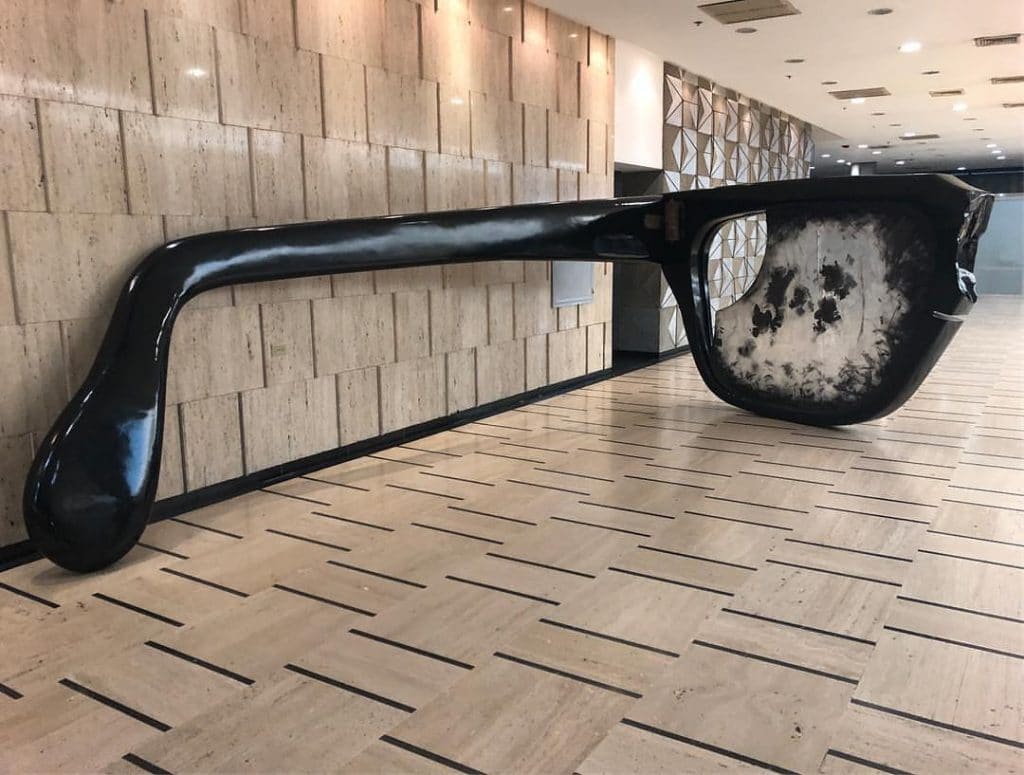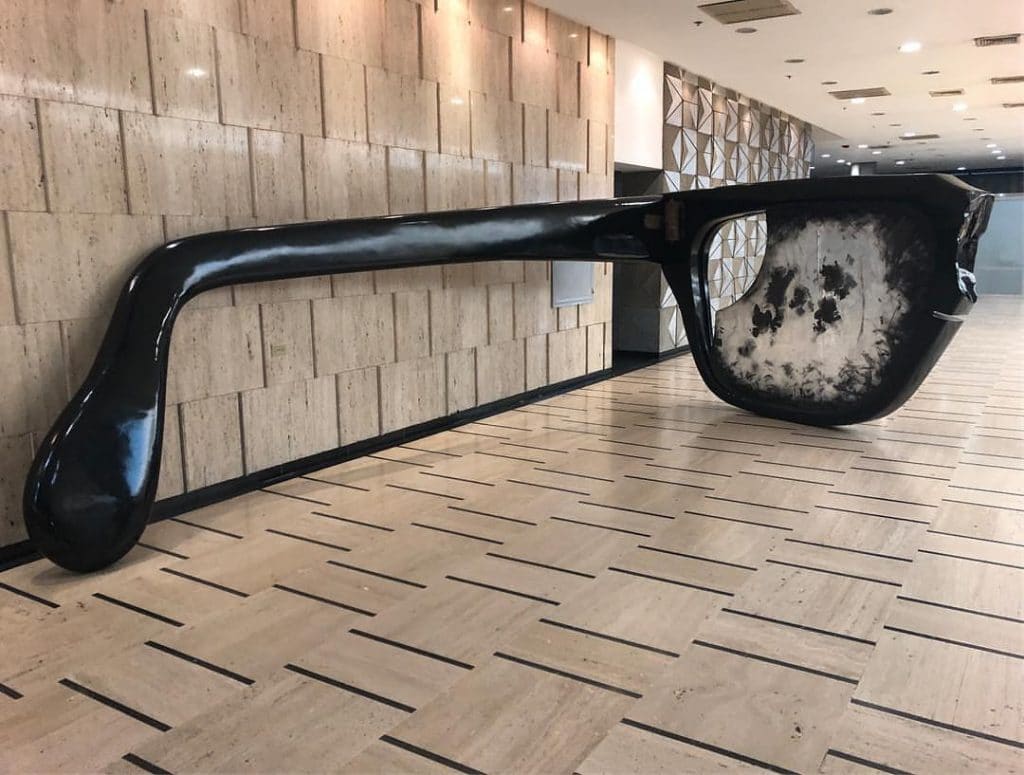Dear Friends,
Greetings from the desk of the Tricontinental: Institute for Social Research.
Nazim Hikmet, the Turkish Communist poet, conjured up the image of a lonely sentry in a camp of fighters in the Spanish Civil War. This volunteer is startled by the horridness of the war and wants to hold dearly to the sensitive values of solidarity and hope.
It is snowing in the night.
You stand in front of the door of Madrid.
In front of you is an army.
Killing the most beautiful things we own,
Hope, yearning, freedom and children.
Hikmet wrote this poem in 1937. The hopes of a generation of the left were laid at the feet of people like this sentry. ‘Everything my nostalgic soul hopes for smiles in the eyes of the sentry at the door of Madrid’, he sang. But then, the forces of hatred and hopelessness seized Spain. Everything seemed to end. We killed the most beautiful things in the world.
From our team in São Paulo, Brazil, comes an informative and heartfelt dossier on the destruction of the Amazon. The Amazon Rain Forest is one of the most beautiful places on the planet. Diverse in every way, the Amazon is home to a fifth of the planet’s fresh water and its rich trees absorbs an incredible amount of the world’s carbon emissions. 170 different indigenous communities make their homes in the rain forest.
Dossier no. 14: Brazil’s Amazon (a short video)
The fight over the Amazon is not new, but the scale of its potential destruction has considerably increased. As the team writes in the dossier, ‘The instruments of this devastation are several: deforestation, logging and illegal burning of the forest, the disorderly expansion of livestock, roads and soybean cultivation as well as the implementation of large mineral and energy projects.’ The protagonists of the murder of the Amazon are clear: capitalist firms of different scales and the political class that enables them. At the frontline of the destruction are the 170 indigenous communities who have lived in the Amazon for the past 11,000 years.
At the other end of the planet, in the Chagos Archipelago, the Chagossians continue to fight against the UK government to regain their sixty islands stolen from them decades ago. On the largest of these islands – Diego Garcia – sits a US military base. The International Court of Justice recently asked the UK to give the Chagossians their islands, but the UK has rejected the verdict as merely ‘advisory’ (please read my column here). Chagos, like the Amazon, is the gate of Madrid. The sentry stands guard, but the army in front is formidable. Hope seems to be vanquished at each turn. And yet.
The former head of the Reserve Bank of India and the former chief economist of the IMF Raghuram Rajan said this week, ‘I think capitalism is under serious threat because it’s stopped providing for the many, and when that happens, the many revolt against capitalism’. The problem is not that capitalism has ‘stopped providing’, but that it is destroying the planet – not only the hopes of people, but also places such as the Amazon.
Rajan, who is likely to become the next head of the Bank of England, is right to point his finger at the failure of capitalism to provide for the many. The question of how to take care of the many is on the table for India’s election that will begin next month. It is likely that the current government – led by the far right – will not be able to form a majority and remain in power. The next government of India will be unlikely to produce an alternative policy slate in terms of our stewardship of nature and for the creation of social equality.
In Kerala (population 34 million), however, the Left Democratic Front government has pushed an agenda to enrich public goods and to lift up the interests of the many. Tricontinental: Institute for Social Research fellows Jipson John and Jitheesh PM interviewed the Chief Minister of Kerala, Pinarayi Vijayan, about such an alternative. Vijayan described the agenda of the government towards the enhancement of the key areas of education, health, employment and pensions as well as the fight over how to define the culture of the society – including the emancipation of women and oppressed castes.
The picture above provides an example of what the Left government has done in Kerala. It is of the Government Higher Secondary School, Karaparamba in Kozhikode. While government schools across the world face a virtual embargo of funds and care, the schools in Kerala have been revamped. This 112-year-old school, which had thousands of students twelve years ago, had an enrolment that declined to 90 largely because of the neglect to the government schools across India.
Karaparamba – The Transformation of a Government School in Kerala
Pradeep Kumar, who is a candidate for the parliament in the upcoming elections, pushed a scheme called Promoting Regional Schools to International Standards through Multiple Interventions (PRISM) and was able to get the Government Higher Secondary School Rs. 12 crores (or Rs. 120 million or US$ 1.7). The school now has smart classrooms, a library, a basketball court, a new dining hall and a new toilet. The school is powered by 30KW solar panels and water is collected and delivered from a rainwater harvesting system. The school – like all public schools in Kerala – provides free sanitary napkins for the girls, as well as a special incinerator to dispose of them. The student body has – because of these improvements – increased to 700. Over the past two years, 235,000 students have moved from private schools to public schools in Kerala. This is the power of the Left alternative.
India’s Communists and the Elections of 2019
For more on the Indian elections, please read the interview with the Communist leader Brinda Karat in our dossier no. 12.
Today, that sentry stands at the gates of Caracas, the epicentre of the ‘battle of the century’ – as João Pedro Stedile put it. It appears now that a concerted e-sabotage campaign has been underway to cut off power and water inside Venezuela. Is it outside the bounds of reason to suspect such sabotage? The Canadian activist Yves Engler writes that the liberal government has a bill (C-59) that seeks to authorise the Communications Security Establishment to carry out offensive operations ‘to degrade, disrupt, influence, respond to or interfere with the capabilities, intentions or activities’ of foreign actors. In effect, says Engler, ‘the Department of National Defence-run intelligence agency could seek to take a government offline or shutter a power plant’.
Late last month, I spent some time in Caracas, where I met a range of people – including some from the opposition (please read my diary here). It became clear quickly that this struggle inside Venezuela is a struggle over who has the right to the country and what policies should shape its future. The old oligarchy wants to return to power, as they have over much of Latin America. They are frustrated by the Bolivarian Revolution’s commitment to the ordinary people of the country. Meanwhile, the ordinary people – the Chavistas – pledge to defend their revolution to the very end. It is a dangerous situation, made more volatile by the incendiary behaviour of the United States, Canada, Colombia and others.
Sentries abound. One was Marielle Franco, who was killed last year on 14 March. Her killers, it now seems, have a connection to the ruling bloc in Brazil. Another is Füsun Üstel, a Turkish academic who signed a peace petition in 2016. She was one of 1,128 scholars who were tried for that petition. Üstel will be the first to go to jail for it. One more is Maria Ressa, the journalist and editor of The Rappler in the Philippines arrested on the charge of cyber-libel for her critical reporting of President Rodrigo Duterte. Forced to post bail six times in two months, Ressa continues to be harassed by the government.
Franco and Üstel wanted and Ressa wants to protect the most beautiful things around us – the most beautiful of them all being hope.
Warmly, Vijay




